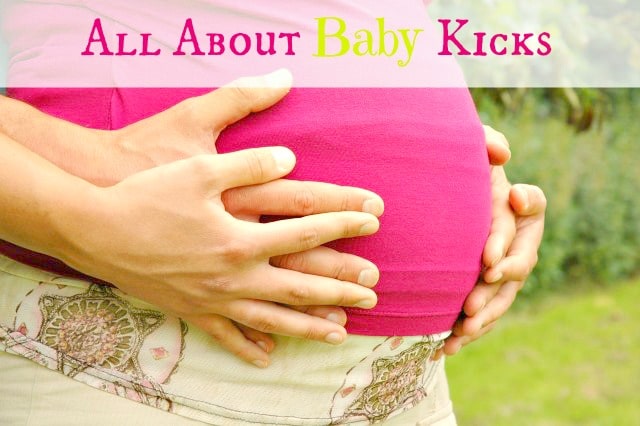Have you been waiting for that first twitch of moevement? Has your mom adn grandmother relayed their stories of their baby’s first kicks?
It will happen, and when it does it will be no less than amazing.
You have already accepted teh truth that a tiny life is growing inside your womb. Yes, you get sentimental about it, but yet, it still seems so far-fetched.
But that head knowledge of yours is about to become a heart knowledge.
Just imagine the oh-so-real scenerio below.
You’re grabbing your de-cafe latte at the drive through and suddenly you feel something.
“What was that?” you ask yourself smiling. Could it be?
Then, it happens again, and again!
You are sure of it now. It is your little one! She’s letting you know she is really in there!
Your mommy hormones take over, and you begin preparing for this new little life. It is no longer a faraway dream — you felt her move!
But since the above scenario has not happened yet, here are a few more questions you may have.
When does a pregnant woman begin to feel the baby’s movements?
Most women report feeling movement around 16-22 weeks of pregnancy. Second and third-time moms may experience the twitches and flutters earlier.
What does it feel like?
Most women describe the first fetal movements as butterflies or popcorn popping inside them. At the beginning, movements are soft, light and sporadic. As the pregnancy progresses, the movements become stronger and more predictable.
When should I worry about baby’s movements?
Monitoring your baby’s jabs, swishes and kicks are always beneficial after the 28th week of pregnancy. By this time, you are sure it’s not indigestion and your little one has established somewhat of a routine.
Babies are typically more active at night due to your blood-sugar levels dropping. They also tend to be more active if you have consumed sugary drinks, caffeine or have had a more physically taxing day.
If you monitor you baby’s movements, and less than 10 movements are felt during a two-hour period, contact your obstetrician immediately. Kick counts, a shorter term for monitoring baby’s movements, are very helpful in signaling babies in stress or other problems that may go undetected during pregnancy.
“At the end of my pregnancy, I noticed my baby was not moving as much as normal. To calm my anxieties, I got out of bed and ate some cookies and drank some juice. Still nothing. After pacing and worrying, I woke up my husband to tell him we needed to go to the hospital. As he was preparing to leave, I went into labor! So, that was my first sign that labor was coming—decreased fetal movements.” comments one mom.
Enjoy those special taps, punches and kicks, but also use them to the advantage of your baby’s health. Those somersaults and flips are more important than many people think. Sometimes they are the only indicators of an unseen problem or issue.

